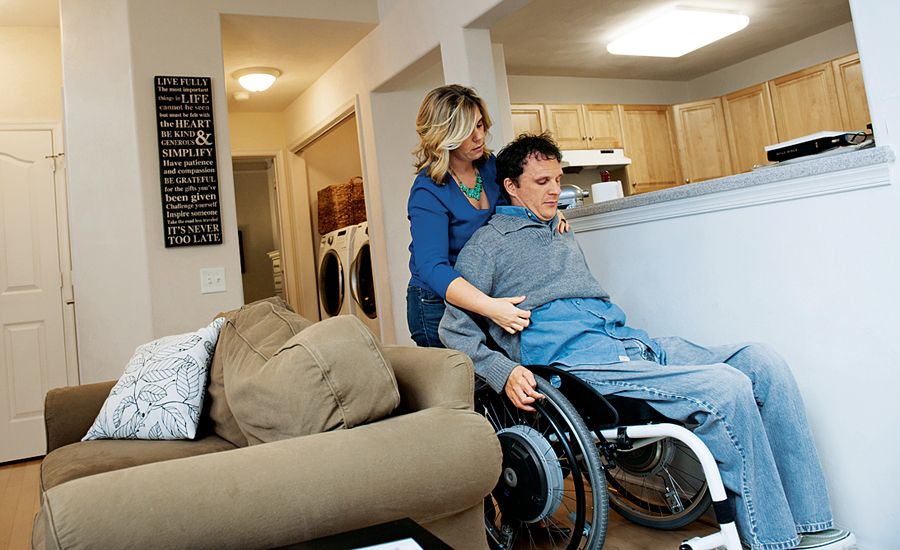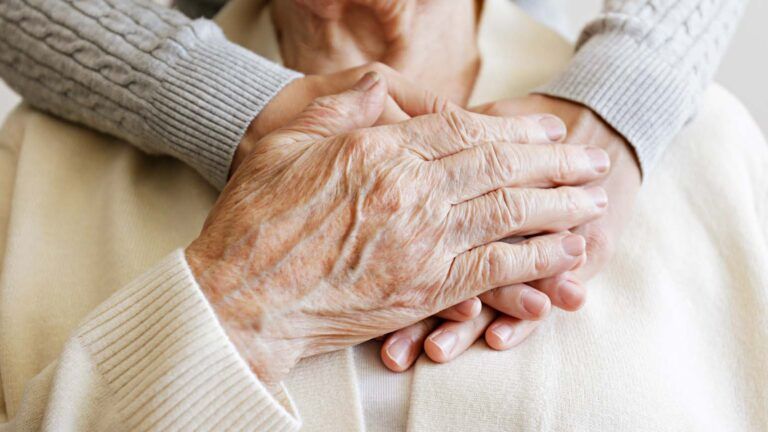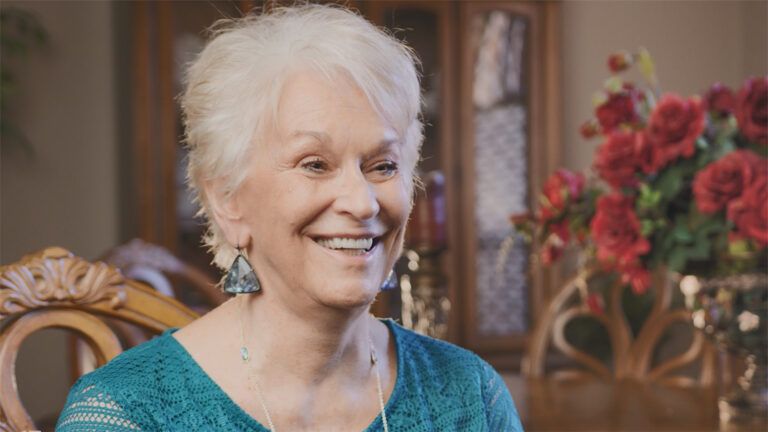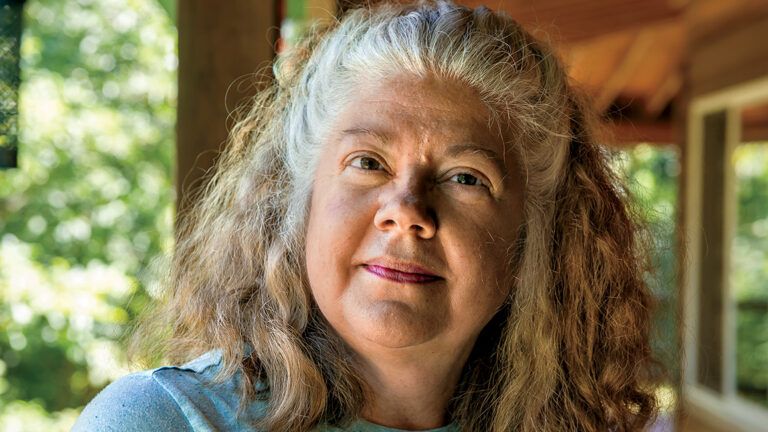Everything was coming together for me. I’d landed my dream job, covering the White House for the Christian Broadcasting Network. I’d found a great apartment in suburban Virginia and took the train to work, an hour and a half commute each way. But I didn’t mind. To me that was a mark of success, proof that all those years of hard work had paid off.
Best of all was the present I got that October, 2008, when my boyfriend, Michael, flew in from Texas for my twenty-eighth birthday. That night on the National Mall he asked me to spend the rest of my life with him. “Yes!” I screamed and threw my arms around him. Nothing had ever felt so right.
I couldn’t wait to tell my family. They were happy, of course—they loved Michael. But there was a shadow of hesitation in their voices. “Are you certain about this?” my mother asked.
“Mom, don’t worry,” I told her. I had, in fact, given it a lot of thought. Prayed about whether Michael was the one. It wasn’t something we’d rushed into. We’d known each other for eight years.
Not that I didn’t understand what my mother was concerned about. Michael is a quadriplegic, able to move his biceps, but otherwise paralyzed from the neck down, the result of a high school gymnastics accident. But when I looked at Michael I didn’t see the man they saw. I saw a vibrant, upbeat, can-do kind of guy.
He was 31, studying web design online. He’d lived on his own for years in Texas with the help of aides. There were things I’d need to do to care for him, of course, like helping him into his wheelchair in the mornings. But I could do that. I wanted to.
Caring for Michael was an act of love, the true measure of how much he meant to me. I persuaded him that we wouldn’t need aides once we were married. I didn’t want strangers in our bedroom. I didn’t want anyone coming between Michael and me, intruding into our personal space. He wouldn’t need aides when he had me.
I clung to that idea for the first year of our marriage. I woke up at 3:00 a.m. five days a week to get myself ready for work and see to Michael—bathing him, dressing him, lifting him into his wheelchair. Then at night doing it all again, only in reverse.
I kept telling myself it would get easier, but I was losing weight; my hair had started to fall out from the stress. That winter, when the alarm went off, it was all I could do to crawl out of bed. One day I almost didn’t. I felt awful—achy, my throat scratchy. But I couldn’t call in sick. I had to get to work. And who would care for Michael but me?
Read More: Tips for Caregivers to Care of Themselves
I felt my way to the bathroom and took a shower, then went to the kitchen and made coffee and lunches for Michael and me. Michael couldn’t grip anything but he could use silverware and pick things up with the help of a leather strap that attached to his arm.
Back to the bedroom. Three-forty-five a.m. Already running late. I had to be at work by seven. I turned on the light and gently stroked Michael’s face. “C’mon, honey, it’s time to wake up.”
I wrapped my arms around him and slowly raised him to a sitting position. Got a washcloth and washed his chest and back. Then laid him back down. Went to the bathroom and drained his urine bag. Came back and wriggled his underwear on. Stretched his arms up and down, from side to side, exercises critical for strength and flexibility. Finally, I put his pants on.
It was time to transfer him to his wheelchair. I put a gait belt, especially made for lifting, around his waist, then put my arms around the small of his back and grabbed hold of the belt. Michael rested his arms against my chest and slowly, using every muscle in my body, I lifted him into his wheelchair. Ooomph! All I could think about was how good it would feel just to fall back into bed.
“Honey, can you adjust my pants a little? They’re bunching up in back.”
Why did he feel the need to tell me this every time? Like I didn’t know. “Yes, of course,” I said, trying not to sound irritated. I took him to the bathroom, washed his hair. Finished dressing him. Wolfed down some instant oatmeal, the same breakfast I made for Michael. Dried my hair. Did my makeup. Kissed Michael goodbye and was out the door. Five-thirty.
Heading into D.C. I stared out the window, the world a passing blur. Exactly how I felt about my life. Before we were married, the thing I’d looked forward to most was telling Michael everything about my day. He’d always been there for me, even before we fell in love, the one constant in a demanding life.
I’d graduated from college in three years. Worked in four different cities in seven years. He’d seen me through some awful breakups. Difficult bosses. Empty, lonely apartments. His faith, the way he never seemed to get down, gave me reassurance when I needed it, sometimes desperately.
We’d met in 1999, when I was in college, on a mission trip to Florida. Back home our occasional calls had grown more frequent until we were talking every day. It was his mind—his intellect, his goofy sense of humor—I first fell for, though it wasn’t like I could ever forget that face, those deep blue eyes.
It was 2006 when we got together in person again. I’d broken up with the guy I was dating. I needed to know if Michael and I could ever be more than just friends. I’d flown to Texas for a week. He’d shown me how to connect to his hand the strap he used to eat with.
In a way that moment felt as beautiful, as intimate, as our first kiss. I loved how open, how unafraid he was about everything. On our last day together we held each other for what seemed like forever. I didn’t want to ever let him go.
And now, now that we were married, it seemed like we never cuddled. I didn’t feel physically married. I’d even begun to resent how, in bed, I had to be the one who lifted Michael’s arm to put it around me. Lately that was more than I could do. Too exhausted. Instead, when I was sure Michael was asleep, I’d bury my head in my pillow and cry.
We almost never went out, besides going to church. We didn’t have the money to buy a van with a wheelchair lift, and I didn’t have the strength to transfer Michael into my SUV. At least not very often. The more I cared for Michael the worse I felt, as though the effort was stripping away my feelings.
I thought caring for him would be an act of love. And I did love him. I was simply devastated that my love wasn’t enough. I’d thought it would be all I’d need. I even found myself snapping at him—like about his bunched pants—and instantly rebuked myself. Who was I to be cross? I had the use of my arms and legs.
“I don’t want to be a burden to you,” Michael had been telling me more and more. “We could hire an aide, take some of the pressure off of you.”
“Oh, honey, you’re not a burden,” I’d respond. “I love you. I want to take care of you.” But more and more, I felt like I was failing him. Failing at the thing that was most important to me.
My head was pounding as the train pulled into the station. My work as a reporter was the one thing I felt good about. A refuge—where people knew me as a professional and not an inept caregiver. But not this day. I could barely talk. I told my editor I was taking a sick day and went to the doctor.
“You have strep throat,” he said. He wrote me a prescription for an antibiotic. “But the best thing is to go home and rest.”
I called Michael, but he didn’t answer. Even when I called again from the drugstore. And on the train. I was dismayed. I felt almost betrayed. The one time I wanted Michael to take care of me, even if it was just to say he was sorry I was sick, he couldn’t be bothered to get the phone.
By the time I got to the apartment I was steaming. I opened the door to find Michael sprawled on the floor. That morning he’d reached to plug in the Christmas tree lights and tumbled out of his wheelchair.
I rushed to his side. I couldn’t move him. I couldn’t use the gait belt. It was for moving him from a bed or his wheelchair. Michael kept telling me what to do. I needed to focus, but I was growing frantic.
“Just shut up and let me think!” I said. For the longest time neither of us said a word. Michael looked like I’d slapped him and I couldn’t imagine feeling much worse if I had.
Finally Michael spoke. His voice was quiet. And deliberate. “I have an idea,” he said. “What if we piled up the couch cushions…”
We could make a kind of ramp we could use to get him onto the couch and from there into his chair. When at last, after many failed attempts, I was able to do it, I was spent. Completely and utterly drained.
I went to the bathroom and collapsed onto the cold floor, sobbing. “I can’t do this,” I cried. “I need help. Please, God, I can’t do this on my own.”
If anyone was ever convicted by her own words, it was me. I can’t do this on my own. Why did I feel like there was no one who could care for Michael but me? I’d wanted to prove my love. Instead I’d made caring for him into a self-defeating obsession—until there was no room for anything else.
No room for us just to be together, as husband and wife, to have a real relationship. No room even for…God. When was the last time I’d felt his presence? Asked for his help? I was trying to be a caregiver when what my husband needed was a wife.
That night I told Michael everything— how I felt as if I was a failure, that I was letting him down. There were tears in our eyes. We were in bed and I lifted his arms to embrace me. They felt strong. As if God was using them to bring us together.
I was ready to accept that I needed help, that asking for help was the most loving thing I could do for my husband and our marriage. We hired an aide to come three mornings a week and get Michael ready for the day. Those three days made all the difference. Not feeling constantly under pressure helped me be a better caregiver. I got so I could do Michael’s entire morning routine in about an hour, once I saw how efficient a professional was.
Four years later I’ve never been happier or more in love. We’ve moved to Virginia Beach, where I still work in TV, but without a long commute. For fun we love going to the beach, or out for coffee in our van—we finally got one, as a gift.
At night I snuggle next to him while we watch TV. My favorite thing to do is anything we’re doing together. Not that it’s always easy. But I know where to turn for help. To a Caregiver who is always there for me, 24/7.
Download your FREE ebook, A Prayer for Every Need, by Dr. Norman Vincent Peale.




